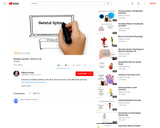
Short video on the anatomy of the skull for anatomy and physiology.
- Subject:
- Anatomy/Physiology
- Applied Science
- Health, Medicine and Nursing
- Life Science
- Material Type:
- Activity/Lab
- Author:
- Dr. Bruce Forciea
- Date Added:
- 04/05/2018

Short video on the anatomy of the skull for anatomy and physiology.
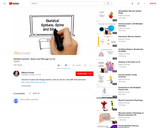
Short video on spine and ribcage anatomy for anatomy and physiology.
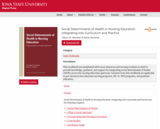
This workbook was established with nurse educators and nursing students in mind to provide knowledge, guidance, and support for integrating social determinants of health (SDOH) across the nursing education spectrum. Contents from this workbook are applicable to pre-licensure baccalaureate nursing programs, RN-to-BSN programs, and graduate education.
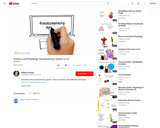
Short video on the somatosensory system for anatomy and physiology.

Short Description:
This textbook was created for nursing intended students to provide a single resource for the most fundamental tools for success. The chapters and activities provide keys for success both inside and outside of the classroom, starting with time management and moving through study and test taking strategies. Self-care is a focus to help students identify how to care for their best self, which will carry on through the nursing profession to avoid burn out. Using the library is foundational for students to be successful with their coursework and evidence based practice in the future. Finally, there is a section on career planning to help guide a student into critical steps to start their journey to becoming a nurse.
Word Count: 39625
ISBN: 978-1-64816-001-1
(Note: This resource's metadata has been created automatically by reformatting and/or combining the information that the author initially provided as part of a bulk import process.)
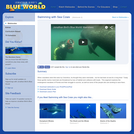
When manatees were first seen by Columbus, he thought they were mermaids..but he had been at sea for a long time! Today these gentle marine mammals are threatened by loss of habitat and collisions with boats. This video segment explores the endangered manatees of Florida and their struggle to survive, as well as some of the people who are working to save them. Please see the accompanying lesson plan for educational objectives, discussion points and classroom activities.

This resource is a video abstract of a research paper created by Research Square on behalf of its authors. It provides a synopsis that's easy to understand, and can be used to introduce the topics it covers to students, researchers, and the general public. The video's transcript is also provided in full, with a portion provided below for preview:
"Voluntary stopping of eating and drinking, or VSED, is one way people around the world choose to end their life prematurely. It’s a conscious choice most often made to end unbearable suffering that cannot be alleviated by modern medicine. In Switzerland, VSED has entered the collective consciousness of healthcare professionals. In 2018, the Swiss Academy of Medical Sciences included the practice as part of its guidelines on “Dealing with Dying and Death”. Even so, the depth of the issue across the nation is largely unknown. How many deaths does VSED account for annually? How do healthcare professionals view the practice of VSED? A recent survey of heads of Swiss nursing homes set out to answer these and other questions. The results suggest ample room for improvement in how VSED is understood and managed..."
The rest of the transcript, along with a link to the research itself, is available on the resource itself.
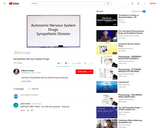
Short video covering common sympathetic nervous system drugs.

This asynchronous activity addresses the common theme of TORCH infections covered in maternal newborn nursing courses and the NCLEX exam.
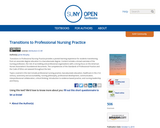
This text provides a pivotal learning experience for students transitioning from an associ- ate degree education to a baccalaureate degree. Content includes a broad overview of the nursing profession, the role of accrediting and professional organizations with a strong focus on the American Nurses Association’s foundational documents. The competencies of the Standards of Professional Practice and the Code of Ethics are weaved throughout the text.
Topics covered in this text include professional nursing practice, baccalaureate education, healthcare in the 21st century, autonomy and accountability, nursing philosophy, profes- sional development, communication, interprofessional collaboration, critical thinking, introduction to evidence-based practice, and nursing leadership and theory.
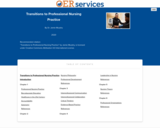
Transitions to Professional Nursing Practice provides a pivotal learning experience for students transitioning from an associate degree education to a baccalaureate degree. Content includes a broad overview of the nursing profession, the role of accrediting and professional organizations with a strong focus on the American Nurses Association’s foundational documents. The competencies of the Standards of Professional Practice and the Code of Ethics are weaved throughout the text.
Topics covered in this text include professional nursing practice, baccalaureate education, healthcare in the 21st century, autonomy and accountability, nursing philosophy, professional development, communication, interprofessional collaboration, critical thinking, introduction to evidence-based practice, and nursing leadership and theory.

Urban Health: A Practical Application for Clinical Based Learning is an openly licensed, peer-reviewed textbook for clinical-based nursing educators covering barriers in urban health and their impact on patient health outcomes. The authors explore perspectives of urban communities, urban patients, and urban healthcare providers to offer insight into how healthcare providers can address disparities in urban healthcare, provide meaningful care with the lived experiences of urban patients in mind, and improve patient-provider communication by moving towards a more solution-driven, team-based care approach. Features include learning activities, exemplars, and case studies.
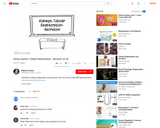
Short video on tubular reabsorption and secretion for anatomy and physiology.
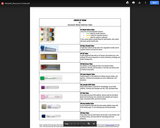
This is a .PDF 8.5" X 11" poster intended for medical lab staff to place on their blood carts. It lists the order of draw for blood tubes according to the color of their stoppers and additives. The poster uses simple English to cater to ESL learners.
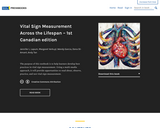
Short Description:
The purpose of this textbook is to help learners develop best practices in vital sign measurement. Using a multi-media approach, it will provide opportunities to read about, observe, practice, and test vital sign measurement.
Long Description:
The purpose of this textbook is to help learners develop best practices in vital sign measurement. Using a multi-media approach, it will provide opportunities to read about, observe, practice, and test vital sign measurement. Boxes with helpful tips are provided throughout the chapters: Technique Tips provide helpful information about measurement techniques, and Points to Consider highlight key points to consider about vital sign measurements and findings.
A Chapter Summary and Printable Flashcards highlighting techniques for each vital sign measurement are provided at the end of each chapter. These printable flashcards are all located together in the textbook’s conclusion chapter.
Learners can review the full textbook or advance to sections that they have identified as areas to work on. The textbook has a self-directed format and provides an interactive and engaging way for learners to develop competence in the measurement of vital signs while integrating knowledge about anatomy and physiology.
Learners will develop knowledge about various vital signs including temperature, pulse, respiration, blood pressure, and oxygen saturation. Measurement of vital signs is a foundational, psychomotor skill for healthcare providers and students in post-secondary health-related programs such as nursing, medicine, pharmacy, midwifery, paramedics, physiotherapy, occupational therapy, and massage therapy. These measurements provide information about a person’s overall state of health and more specifically about their cardiovascular and respiratory status. These measurements can also reveal changes in a client’s vital signs over time and changes in their overall state of health. Proficiency in vital sign measurement is essential to client safety, care, and management. Measurements can influence clinical decision-making related to therapeutic interventions.
Word Count: 28583
(Note: This resource's metadata has been created automatically by reformatting and/or combining the information that the author initially provided as part of a bulk import process.)
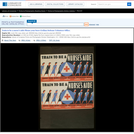
Poster encouraging women to become nurses' aides for the Civilian Defense Volunteer Office, showing women in civilian dress and nurse's uniforms. Designed by WPA NYC O.P. 165-1-97-56 W.P.I.
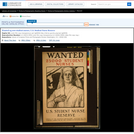
Poster issued by the Woman's Committee of the Council of National Defense, showing nurse with right hand raised to her heart.
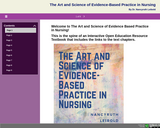
This is an OER textbook about evidence-based practice in nursing. This is an interaction textbook that includes many engaging activities and multimedia. This textbook was written with accessibility standards in mind.
The Art and Science of Evidence-Based Practice in Nursing is an interactive open textbook that focuses on the key areas for a nurse to know when developing skills in evidence-based practice. An introductory special focus is on the muddy points of evidence-based practice content.
Users may use the textbook for free, but must credit author Nancyruth Leibold.
Two Main Goals of the Text
Provide information about evidence-based practice nursing with a focus on the muddy areas that are often challenging to learn when first starting out to learn about evidence-based practice in nursing.
Provide opportunities to improve literacy in evidence-based practice nursing and basic statistics.
The author of the text recommends that other credible sources of information are used along with the textbook to promote the breadth and value of learning from multiple sources. The critical thinker should always use multiple sources to enrich their mind with perspectives from a variety of scholars.
The Overall Aim of the Text
is to provide information to develop nurses as consumers of research evidence to improve patient/family/community outcomes.
This text is intended to be an introductory level resource for nurses learning about evidence-based practice. The text is not a comprehensive or advanced level text or an end all be all resource, but focuses on some critical and challenging aspects for nurses learning about EBP. This text focuses on the muddy areas of EBP. That is, the areas that are commonly confusing for nurses to understand when first learning how to practice EBP in nursing.